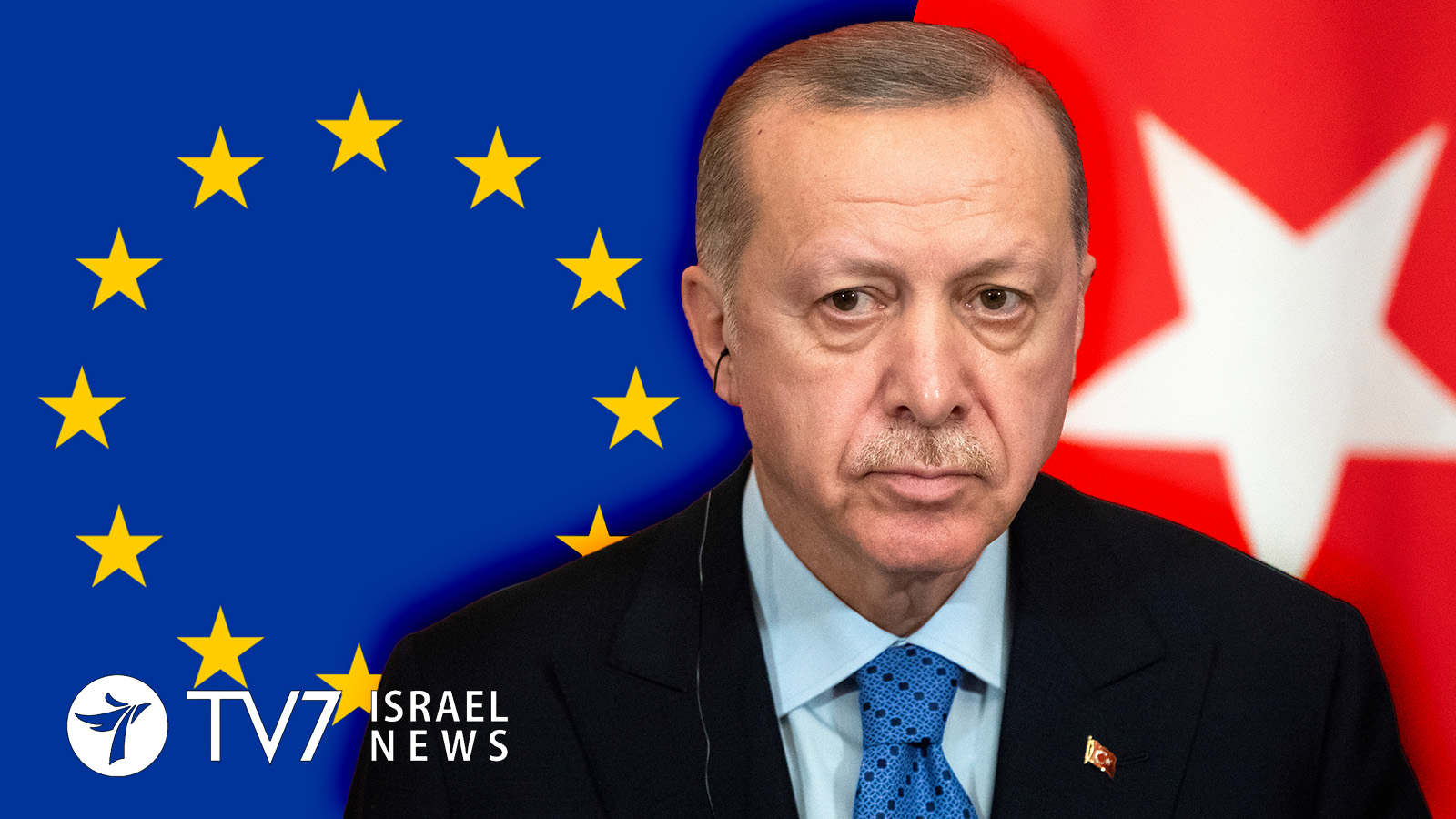Greece reiterated its call on the European Union to impose heavy economic sanctions on Turkey and a limited period of time, if the latter would refuse to remove its military and drilling vessels off the coast of Cyprus.
Greek Deputy Foreign Minister Miltiadis Varvitsiotis said “the sanctions should put this pressure, and they should be severe. For a limited time, but severe, in order to send a message that Europe is here to negotiate but also is here to defend its values.”
The demand comes amid skyrocketing tensions in the East Mediterranean Sea. In addition to deploying a seismic exploration vessel under the protection of five warships in disputed waters, Turkey has announced it will send a drilling vessel to southwest Cyprus in complete disregard of Nicosia’s territorial claims.
Ankara further ramped up hostilities by issuing threats against the entry of any other vessels into the area, just as European naval forces are amassing troops in support of Greece and Cyprus.
French President Emmanuel Macron responded to the latest developments by stating, “Turkey has unacceptable drilling practices in Cyprus’ exclusive economic zone, and it is multiplying provocations in a manner that is unworthy of a great state. The Turkish people are a great people and they deserve something else. When I speak of a “Pax Mediterranea” (Mediterranean peace), it must go with the capacity to find a modus vivendi (mode of living) with Turkey. But we, Europeans, must be clear and firm with Turkey, not as a nation, as a people, but with the government of President (Recep Tayyip) Erdoğan, which behaves today in an unacceptable way and I mentioned only one part of it.”
President Macron further stressed that while Europe wants to avoid an escalation, it will not remain passive in the face of Turkey’s aggression. “Our will is to avoid an escalation. However, avoiding escalation does not have to mean passiveness or acceptance. The red lines are the ones I just mentioned. The goal is a concord. Today, it is up to Turkey to clarify its intentions,” he proclaimed.
In an address to the European Parliament via videoconference, Turkish Foreign Minister Mevlüt Çavuşoğlu insisted that the European Union has no legal jurisdiction and should remain unbiased in Turkey’s dispute with Greece and Cyprus, even though the two nations are EU members. “By acting as an international court, defending one side’s claims over the issue, the EU has become a party of the problems, unfortunately. However, even the European Court of Justice has ruled that the Union has no jurisdiction over maritime border disputes. It has also no competence on maritime boundaries delimitations. I mean the EU Court of Justice’s decision of January 31st on Slovenia/Croatia maritime dispute. Therefore, the EU position in the Eastern Mediterranean is unfair and not compatible with international law,” said Turkey’s top diplomat.
Foreign Minister Çavuşoğlu’s claims failed to convince the EU, which shortly thereafter announced its decision to draw up a list of new sanctions against Turkey at the end of September, unless Ankara comes to the negotiating table to resolve its EastMed territorial row with the two island nations.
